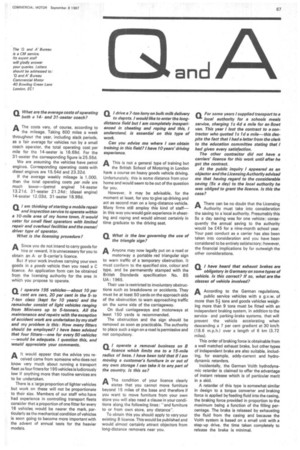I have heard that exhaust brakes are obligatory in Germany
Page 69

If you've noticed an error in this article please click here to report it so we can fix it.
on some types of vehicle. Is this correct? If so, what are the classes of vehicle involved?
AAccording to the German regulations,
public service vehicles with a g.v.w. of more than 51 tons and goods vehicles weighing more than 9 tons must be fitted with an independent braking system. in addition to the serviceand parking-brake systems, that will prevent the vehicle accelerating when descending a 7 per cent gradient at 30 km/h (18.6 m.p.h.) over a length of 6 km (3.72 miles).
This order of braking force is obtainable from a well matched exhaust brake, but other types of independent brake are also suitable, including, for example, eddy-current and hydrodynamic retarders.
Incidentally, the German Voith hydrodynamic retarder is claimed to offer the advantage of instant release which is of particular merit in a skid.
A retarder of this type is somewhat similar in design to a torque converter and braking force is applied by feeding fluid into the casing, the braking force provided in proportion to the maximum being a function of the filling percentage. The brake is released by exhausting the fluid from the casing and because the Voith system is based on a small unit with a step-up drive, the time taken completely to release the brake is minimal.




















































































































